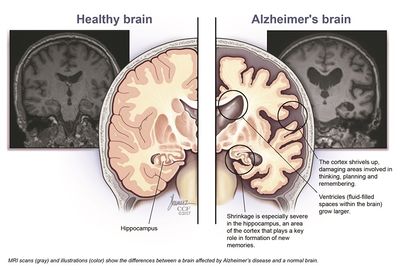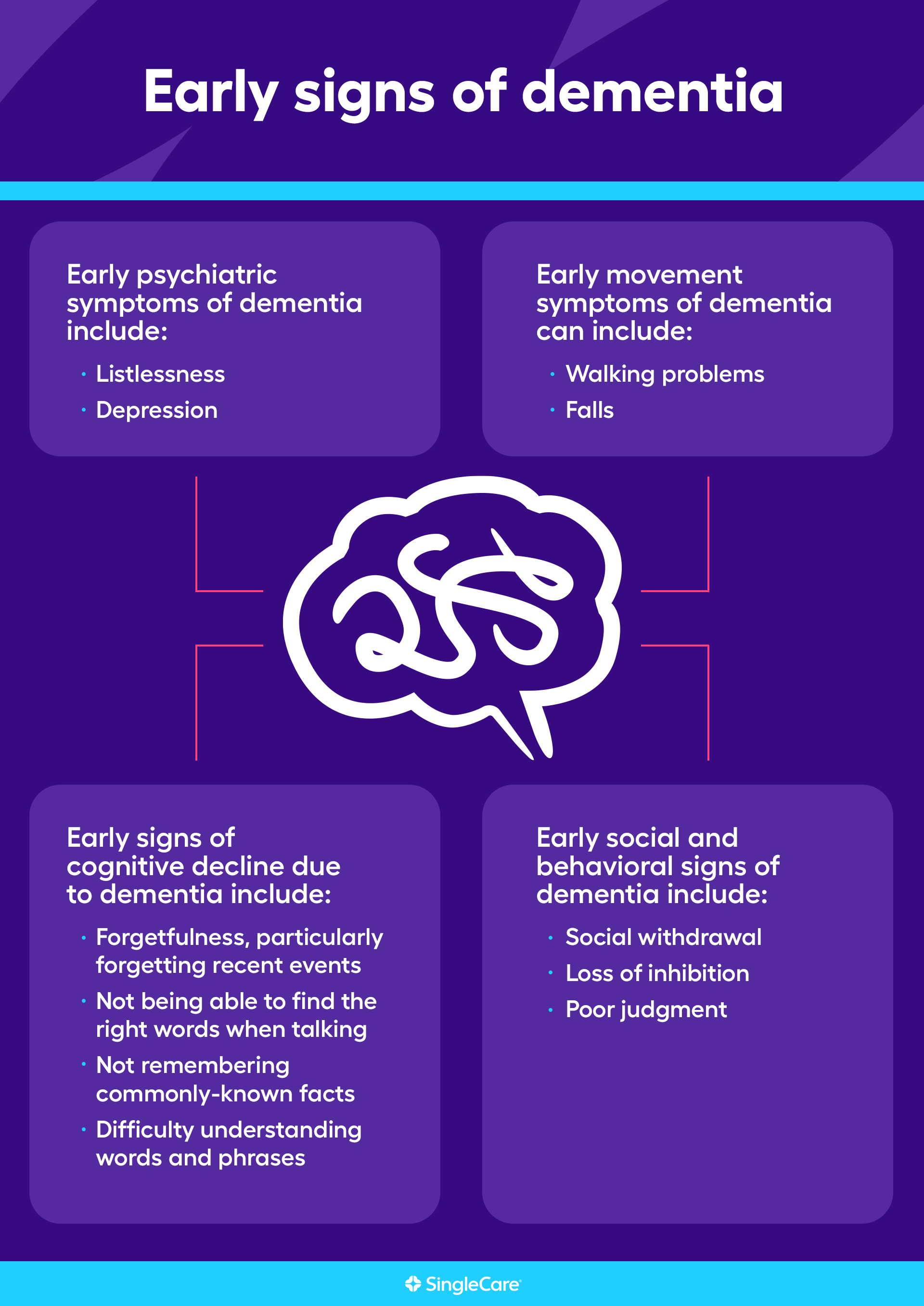The Role of Blood Pressure Management in Preventing Vascular Dementia
Comprehending the Impact of Mental Deterioration on Day-to-day Live and Caregiving
Mental deterioration affects every day life in extensive methods, affecting not simply those identified but additionally their caregivers. As cognitive decrease advances, you may see modifications in communication and regular that challenge both events. Comprehending these shifts is important for keeping dignity and involvement. Just how do you adjust your caregiving approaches to sustain someone traversing this facility trip? The answers could stun you as we check out the nuances of this experience.
The Stages of Mental Deterioration and Their Results on Every Day Life
As you navigate the trip of dementia, recognizing its stages can markedly affect exactly how you take care of every day life. Dementia usually advances via 3 major stages: early, middle, and late. In the early stage, you may observe periodic memory gaps or problem locating the right words. This can result in stress, but recognizing these signs early assists you adjust your regular and look for assistance.
During the middle stage, you'll experience much more obvious cognitive decline. Daily tasks might become challenging, and maintaining your self-reliance might call for modifications. Using pointers and simplifying your environment can help.
In the late phase, people frequently need substantial aid with day-to-day tasks. Preparation for treatment ends up being important, concentrating on convenience and lifestyle. By comprehending these stages, you're much better outfitted to react proactively, ensuring you or your enjoyed one can navigate the challenges with self-respect and grace.

Modifications in Interaction and Social Communication
Just how do modifications in interaction impact your day-to-day communications as dementia progresses? As dementia advancements, you may observe that basic discussions end up being tough. Words may escape you, or you may struggle to locate the right expressions. This can lead to disappointment for both you and your enjoyed ones. Nonverbal hints, like gestures or facial expressions, end up being progressively crucial.
You may locate it simpler to connect through these methods as opposed to relying solely on talked language. Listening abilities can likewise change; you could locate it more difficult to keep in mind or follow discussions what was simply said (Early Onset Dementia). This can result in misunderstandings or sensations of isolation
Urging perseverance and developing a helpful atmosphere can assist. Engaging in tasks that cultivate connection, like music or art, can enhance social interactions. Remember, keeping partnerships is still possible; it's almost adapting to new methods of communicating.
Influence on Daily Routines and Activities
While maneuvering everyday regimens, you'll likely discover that tasks you as soon as finished easily become much more tough as mental deterioration progresses. Basic activities like food preparation, clothing, or perhaps bathing might call for even more time and effort. You may find yourself failing to remember action in acquainted regimens or struggling to recall where you put things. This can result in irritation not simply for you, yet also for those around you.
Planning your day can feel overwhelming, making it more challenging to stay with a routine. You might require suggestions for consultations or to take drugs. Adjusting your atmosphere can assist; for example, labeling things or making use of checklists can streamline tasks. Participating in recurring, structured activities can also provide comfort and a feeling of achievement. Keep in mind, it's fine to request aid. Bordering yourself with supportive good friends or household can make handling these changes a little bit less complicated.
Behavior and psychological Difficulties
Guiding with everyday routines can produce not just practical obstacles, yet likewise psychological and behavior ones. You could observe changes in mood, such as raised anxiety or frustration, which can stem from confusion or difficulty in completing tasks. As you navigate these moments, it is essential to acknowledge that your liked one might reveal their feelings with actions like anxiety or withdrawal.
These emotional reactions can be unpredictable and might emerge without caution, leaving you both sensation bewildered. You may find that familiar atmospheres or routines can help in reducing stress and anxiety, yet keeping perseverance comes to be substantial. It is essential to verify their sensations, even if you do not fully understand them.
The Role of Caregivers in Supporting People With Dementia
As a caretaker, you play a vital duty in providing emotional assistance for people with mental deterioration. Developing daily care routines can produce a sense of security and convenience, aiding to ease their anxiety. By comprehending their requirements and making use of reliable approaches, you can considerably improve their top quality of life.
Psychological Assistance Strategies
When looking after a person with mental deterioration, recognizing the psychological landscape is vital for supplying efficient assistance. You'll usually locate that persistence and empathy go a long means. Confirm their sensations; if they share complication or frustration, acknowledge it without dismissing their feelings. Straightforward motions, like holding their hand or preserving eye get in touch with, can create a feeling of protection. Try to engage in activities that they delight in, as this can spark delight and connection. Remember to connect plainly and slowly, using a tranquil tone. Urge expression with music or art, which can work as an effective outlet. Ultimately, do not fail to remember to care for your own psychological requirements; seeking support for yourself can boost your capability to care for them.
Daily Treatment Routines
Establishing day-to-day care regimens is important for giving stability and convenience to individuals with mental deterioration, as these routines can assist reduce confusion and anxiousness. You can start by laying out a constant timetable for meals, tasks, and remainder. This predictability assists your enjoyed one feel a lot more safe and secure and engaged.
Integrate acquainted jobs, like folding laundry or watering plants, which can stimulate favorable memories and foster a sense of success. Use visual signs, such as checklists or calendars, to guide them via the day.
Be adaptable, though; adapt regimens as required based upon their mood or energy levels. Frontotemporal Dementia. Bear in mind, your patience and understanding are essential in navigating their altering demands, guaranteeing they feel supported and valued throughout their life
Developing a Safe and Comfortable Living Environment
Developing a risk-free and comfortable living environment is crucial for people with dementia. You'll wish to make home security adjustments that minimize threats and assure knowledge to provide a sense of comfort. By concentrating on these facets, you can aid develop a room that sustains both safety and security and well-being.
Home Security Adjustments
As you navigate the difficulties of dementia, making home safety modifications can substantially boost convenience and security. Beginning by getting rid of additional hints tripping dangers like carpets and clutter, guaranteeing walkways are clear. Mount grab bars in bathrooms and non-slip floor coverings in the shower to avoid drops. Think about using brighter lighting and evening lights to enhance visibility, especially during nighttime. Tag crucial areas, such as the restroom and kitchen, with clear indicators to aid with positioning. Protect any sharp things or hazardous compounds out of reach. In addition, examine your home's alarms and locks to confirm they're easy to use and provide satisfaction. These adjustments not only advertise safety yet likewise motivate independence, enabling your loved one to really feel more at convenience in their atmosphere.
Comfort and Experience
After guaranteeing a risk-free atmosphere with needed alterations, promoting comfort and experience is important for individuals with dementia. Maintain a consistent regular to assist them really feel grounded and minimize stress and anxiety. Engaging in acquainted activities, such as listening to music or horticulture, can improve their sense of belonging, making their living environment a real shelter.
Approaches for Efficient Caregiving and Assistance
While maneuvering the difficulties of mental deterioration treatment can feel frustrating, applying reliable techniques can greatly improve both the caregiver's and the patient's day-to-day experience. Begin by developing a routine; predictability helps decrease stress and anxiety for both you and your loved one. Use clear, easy interaction-- direct questions and short sentences can protect against confusion.

Do not neglect to deal with on your own; routine breaks and connect with support system. Sharing experiences with others in similar circumstances can give useful insights and psychological relief.
Lastly, continue to be individual and flexible. Mental deterioration can bring unpredictable modifications, so adapting your technique is important. By using these approaches, you can promote an extra favorable setting that benefits both you and your loved one.
Frequently Asked Questions

What Are the Different Types of Mental Deterioration?
You'll find numerous kinds of mental deterioration, including Alzheimer's, vascular dementia, Lewy body mental deterioration, and frontotemporal dementia. Each kind affects memory and cognitive function differently, so comprehending the differences is important for appropriate medical diagnosis and care.
Just How Can I Help Somebody With Early-Stage Dementia?
You can aid someone with early-stage dementia by being individual, using assistance, and motivating them to participate in tasks they enjoy. Maintaining regimens consistent and keeping open interaction can likewise make a substantial distinction in their life.
Are There Financial Resources Available for Dementia Care?
Yes, there are funds readily available for mental deterioration care. You can check out entitlement program programs, not-for-profit organizations, and insurance policy choices. It's additionally smart to speak with local companies for certain sources customized to your situation.
What Legal Factors To Consider Should Caregivers Recognize?
As a caregiver, you need to think about power of attorney, healthcare proxies, and guardianship laws. It's essential to recognize the legal rights and responsibilities you check that hold, ensuring your enjoyed one gets proper treatment click here for info and protection.
Just How Can I Deal With Caregiver Tension?
You can manage caretaker anxiety by focusing on self-care, looking for assistance from pals or teams, establishing sensible expectations, taking breaks, and exercising relaxation methods. Remember, your health matters equally as long as the individual you're caring for.
Comprehending the Effect of Mental Deterioration on Daily Life and Caregiving.
As you navigate the trip of mental deterioration, recognizing its stages can markedly influence how you handle everyday life.While maneuvering everyday regimens, you'll likely notice that jobs you as soon as finished easily ended up being a lot more tough as mental deterioration proceeds.Developing daily treatment regimens is important for supplying stability and comfort to people with dementia, as these regimens can help decrease confusion and anxiousness.While steering the obstacles of mental deterioration treatment can really feel frustrating, applying efficient methods can greatly boost both the caretaker's and the patient's everyday experience.